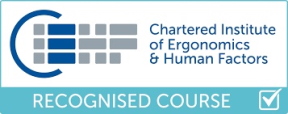Managing Human Failure – Human Factors in the Chemical and Process Industries, Module Two
Online | Face-to-face | In-company
Overview
This human factors course explores how to proactively manage human failure, which is crucial to preventing major accidents, occupational accidents and ill health, and improving an organisation's overall performance. The course covers how to proactively manage human error and non-compliance, analyse human failures contributing to incidents, and manage performance under pressure.
This is module two of our Human Factors in the Chemical and Process Industries training programme, which provides practical insight into the key human factors issues facing the industries. You can attend as a one-off course, or alongside our other human factors modules to get a comprehensive overview of the subject.
Learning outcomes
- Understand how to reduce human error
- Understand how to manage violations
- Understand how human failures contribute to incidents
- Understand how to manage performance under pressure
Who will benefit
- HSE managers and advisors
- Operations managers
- Safety engineers
- Chemical/process engineers
- In-house human factors advisors eg COMAH operators' 'intelligent customers'
Course outline
Reducing human error
- What makes error more likely?
- How can we make people safer?
- Identifying safety critical tasks
- Analysing tasks
- Conducting human reliability analysis
Managing non-compliance
- The significance of non-compliant behaviour in incident causation
- Different types of non-compliance
- Factors that provoke non-compliance
- ABC analysis – a tool to understand decision-making in the context of non-compliant behaviour
- What can be done to reduce the likelihood of non-compliance
Human factors in incident investigation
- Human factors in the investigator (common human failings in investigators; interviewing skills – best practice)
- Human factors in the investigation (key steps; recent best practice guidance; case study)
Managing performance under pressure
- Understanding stress and its consequences
- Causes of stress: chronic and acute
- Managing pressure at work
- Improving resilience
What delegates say
Previous delegates said this course would help them to:
- manage human errors and violations more effectively
- apply the practical techniques learnt to their role straightaway
- reinforce their behaviours when managing human factors
- use the techniques learnt in staff appraisals and incident investigations
- ask informed questions and identify when further expertise is necessary
- compare current practices with good practice
- better understand human behaviours
- mange the effects of stress (on both individuals and the team) more effectively
- introduce new tools and techniques to their organisation
Course delivery
Online.
Live sessions are delivered via Microsoft Teams. If you don't already have this installed, you can join as a guest in order to access the training.
There will be some work to complete independently before the course and between the live sessions. More details will be provided after you have registered.
Dates
- Session one: 23 June 2025, 09:30–12:30 BST
- Session two: 24 June 2025, 09:30–12:30 BST
- Session three: 25 June 2025, 09:30–12:30 BST
- Session four: 26 June 2025, 09:30–12:30 BST
Not available then or looking for an alternative course delivery? View more dates.
Fees
- Single module: £2,200 + VAT
- Book all four modules together: £1,650 + VAT per module
In-company training
Our human factors training can be delivered to in-house teams, either on-site or online. This could be a cost-effective option if you have several people requiring the training. Content can be tailored to your specific requirements. Request a quotation.
Attendance certificate & CPD hours
An e-certificate will be issued at the end of the course to confirm attendance and CPD hours logged. Please note that you must attend the whole course to receive the certificate.
In the case of online courses, CPD hours should be used as an approximate guide and will vary depending on the preferred approach of the delegate and to what extent additional learning is completed.
Endorsements

In partnership with:

Associated courses
Managing Human Factors – Human Factors in the Chemical and Process Industries, Module One
Learn about the key human factors concepts within risk management.
Strengthening Organisational Performance – Human Factors in the Chemical and Process Industries, Module Three
Learn how to strengthen organisational safety through effective management of human factors.
Human Factors in Design – Human Factors in the Chemical and Process Industries, Module Four
Explore the key human factors principles to address at the design stage.

Trainer
Richard Scaife
Director, The Keil Centre
Richard is a Chartered Occupational Psychologist, a Chartered Ergonomics and Human Factors Specialist, a Fellow of the Institute of Ergonomics and Human Factors, and a Chartered Scientist. He has a BSc in applied Psychology, an MSc in Occupational Psychology, and over 30 years of practical ergonomics experience within various industries. Before joining the Keil Centre, he spent six years working for National Air Traffic Services, latterly as the head of human safety in their human factors unit, and four years working on the design of military sensor systems, primarily for aircraft. Richard specialises in all aspects of human factors, particularly organisational safety, human safety analysis (including human error) and incident investigation. He has cross-industry experience, providing consultancy expertise and training. He was awarded the British Psychological Society Practitioner of the Year Award in 2006.

Trainer
Charles Shoesmith
Managing Director, PsychaLogica
Charles is a Chartered Psychologist with more than 35 years of international experience consulting in the area of individual and organisational behaviour, cultural development and learning, often with an emphasis on health and safety. He has particular expertise in the design and development of innovative and effective solutions to complex organisational and people performance issues. He is an extremely effective presenter and trainer, applying his background in learning and educational theory to tailor courses to meet specific needs.

Trainer
James Bunn
Specialist Inspector, Energy Division, Health and Safety Executive
James was formerly a Principal Human Factors Consultant with the Keil Centre. He has a Masters in Ergonomics and is a Chartered Ergonomics and Human Factors Specialist, a member of the Institute of Ergonomics and Human Factors and a member of the Institute of Industrial Accident Investigators. He has a broad experience base, having previously worked for the UK health & safety regulator and the energy sector in Norway. James was the human factors specialist member of the multi-disciplinary team that investigated the terror attack on the In Amenas Tigantourine gas facility site in Algeria. This was a major incident which received international media coverage and resulted in a public inquest in the UK. He is an experienced human reliability analyst and covers several areas of human factors.

Trainer
Ken Gray
Director, The Keil Centre
Ken is a Chartered Psychologist, a registered Occupational Psychologist with the HCPC and an Associate Fellow of The British Psychological Society. He leads the Business Psychology and Wellbeing services at the Keil Center and his cross-industry experience includes local and national Government, energy, chemical, aeronautical, mining, construction, housing, engineering, steel, FMCG and oil & gas. He applies powerful psychometrics, facilitation and coaching techniques that inform both personal development choices, and help to strengthen and sustain productive team working relations. He also works with client organisations to develop behaviour standards, competencies, robust selection, development and performance review systems. In 2010, he was shortlisted for the British Psychological Society Practitioner of the Year Award.